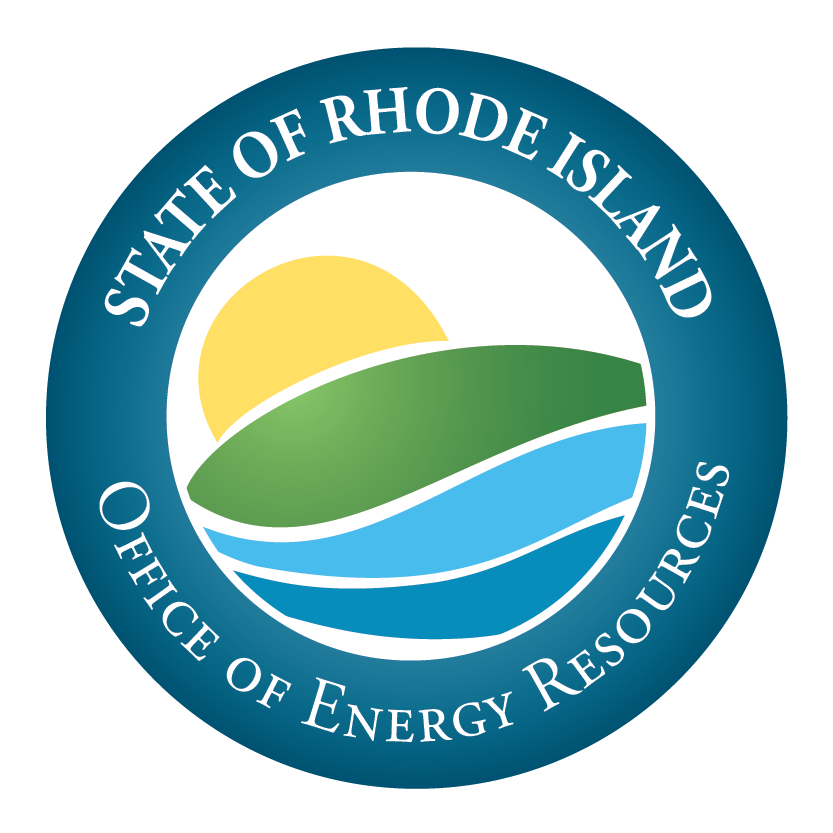Solar For All
The Inflation Reduction Act authorized EPA to implement the Greenhouse Gas Reduction Fund (GGRF), a historic $27 billion investment. GGRF will be implemented via three grant competitions: the $14 billion National Clean Investment Fund, the $6 billion Clean Communities Investment Accelerator, and the $7 billion Solar for All competition.
The Greenhouse Gas Reduction Fund Solar For All program is designed to:
- Reduce greenhouse gas emissions and other air pollutants.
- Deliver the benefits of greenhouse gas- and air pollution-reducing projects to American communities, particularly low-income and disadvantaged communities.
- Mobilize financing and private capital to stimulate additional deployment of greenhouse gas and air pollution reducing projects.
Rhode Island's Proposed Program Summary: The Rhode Island coalition of applicants is proposing the launch and expansion of a comprehensive suite of seven financial assistance programs and several project deployment technical assistance initiatives designed to equitably address barriers to solar adoption in Rhode Island’s low-income and disadvantaged communities. All financial assistance programs are tailored to defray specific and longstanding financial barriers to solar adoption while addressing the needs of low-income renters and homeowners. The following financial assistance programs specifically deliver meaningful benefits of reliable solar power directly to RI's most historically underserved communities through low-income and DAC-specific eligibility requirements.
| Proposed Solar For All Financial Assistance Program | Solar Program Type |
| Low-Income Residential Solar Direct Ownership Adder | Rooftop Residential, single family |
| Low-Income & DAC Roof and Electrical System Upgrade Adder | Residential Enabling upgrades |
| Low-Income/DAC Residential Energy Storage Adder | Energy Storage (paired with solar) |
| Affordable Housing Solar Supplemental Program (AHSSP) | Multifamily Housing |
| Community Remote Net Metering (CRNM) Program | Community Solar |
| Financing Community Solar on Preferred Sites | Community Solar |
REF “Adder” Expansions: Delivers upfront incentives in the form of grants to low-income customers or disadvantaged communities for rooftop solar direct ownership, enabling upgrades, and associated storage. All three adders proposed in this application offer low-income carveouts of existing solar and associated storage grant programs. These adders can all be paired with each other and applied directly to total project costs, reducing the burden of upfront investment, enabling low-income households to own their own system and build wealth in communities that have historically been underserved by RI’s ratepayer funded grant programs. Programs 2 and 4 double existing adders for income/DAC eligible residents, while Program 3 is an entirely new adder supporting enabling upgrades by mitigating longstanding barriers to solar adoption in RI’s oldest homes.
Affordable Housing Solar Supplemental Program: a milestone-based grant program that delivers meaningful solar benefits to energy efficient multifamily housing for low-income tenants and homeowners. Projects can include new construction as well as deep retrofitted housing.
Community Remote Net Metering: a milestone-based grant program that will facilitate the 40MW statutory expansion of RI’s community solar pilot program to a total of 70MW, reducing ratepayer costs for the implementation of CRNM. Meaningful benefits will be delivered to over 4,500 additional customers through low-commitment subscription models.
Financing Community Solar on Preferred Sites: will further enable financing options for community solar on public preferred sites, while emphasizing the importance of energy resilience for DAC-serving critical facilities.
Impact Targets
Of the 244 census tracts in Rhode Island, 61 are identified by CEJST as disadvantaged. According to data obtained through the Low-Income Energy Affordability Data Tool (LEAD), RI’s disadvantaged census tracts are home to 97,892 households. Of the 97,892 DAC households, 66,421 (67.85%) are renters and 32.15% are homeowners. The programs proposed in this application can provide meaningful benefits to over 8,500 households.
RI's Solar For All Application Coalition Partners:
- Rhode Island Commerce, Renewable Energy Fund
- Rhode Island Infrastructure Bank
- Rhode Island Department of Environmental Management
- Rhode Island Housing
- Rhode Island Department of Labor and Training
- RI AFL-CIO
- Rhode Island Department of Health and Human Service
- Rhode Island Center for Justice
Empowering Tomorrow: A Preview of States’ Greenhouse Gas Reduction Fund Solar for All Programs
The Clean Energy States Alliance has published a report showing the potential impact of the U.S. Environmental Protection Agency’s $7 billion Solar for All competition. This report provides the first public look into the range of state proposals that have been submitted in response to this competition.
For this report, CESA received exclusive access to the Solar for All applications submitted in 33 states, the District of Columbia, and Puerto Rico. The report summarizes trends across these applications and presents data on the impact that Solar for All programs could have on the low-and-moderate-income solar market. The report includes information about how many total households could be served, how much solar and storage could be installed, breakdowns by sector, and much more. The report can serve as a market readiness tool, to help states prepare for a massive and historic influx of LMI solar funding.
A Preview of States’ Greenhouse Gas Reduction Fund Solar for All Programs
OER hosted a public meeting announcing the funding opportunity on Wednesday, September 6, 2023 at 6:00 PM.
This meeting will also be held in-person in the Narragansett Room at RI Commerce, located at 315 Iron Horse Way, Suite 101, Providence, RI, 02908.
Public Comments were due by 11:59 PM on Friday, September 15, 2023.
Click here to access the public comment webpage.
Click here to access the meeting agenda
Click here to access the slide deck
Contact Us
For more information or inquiries, please contact Jeanne Cherry at OER.SFA@energy.ri.gov.
